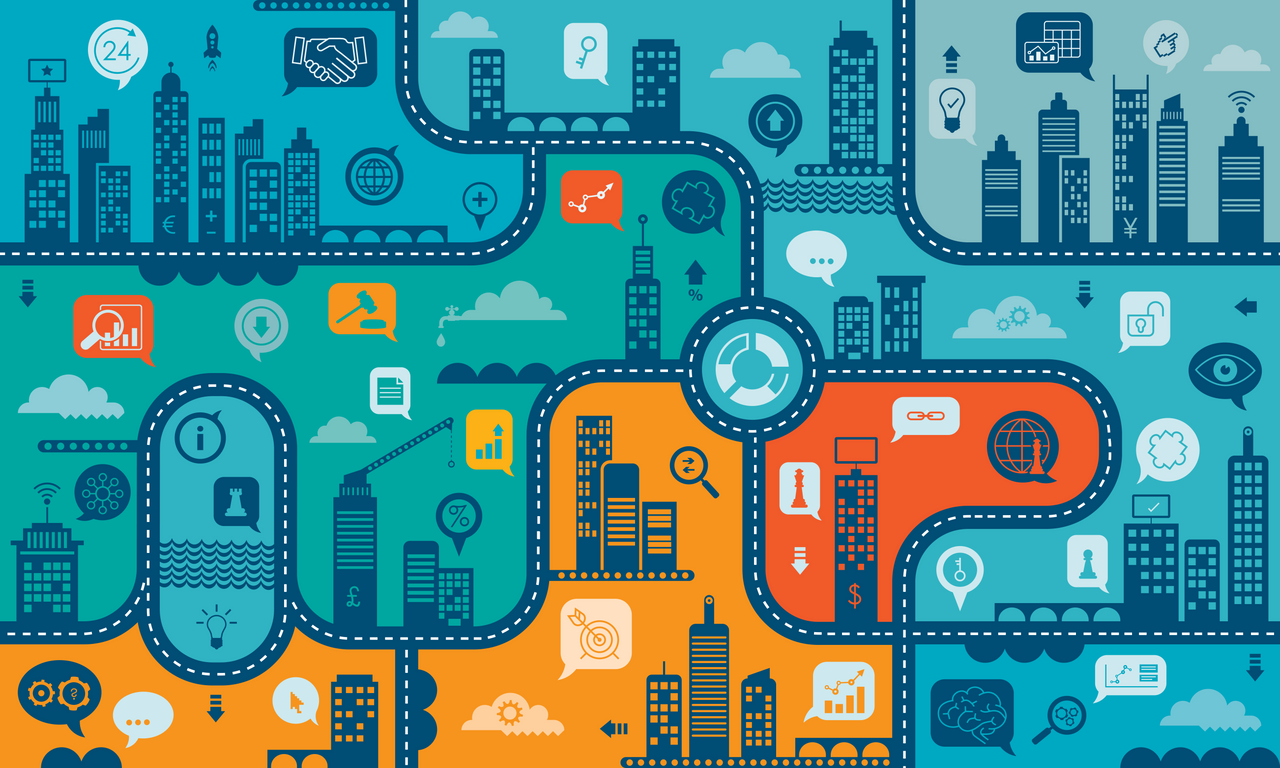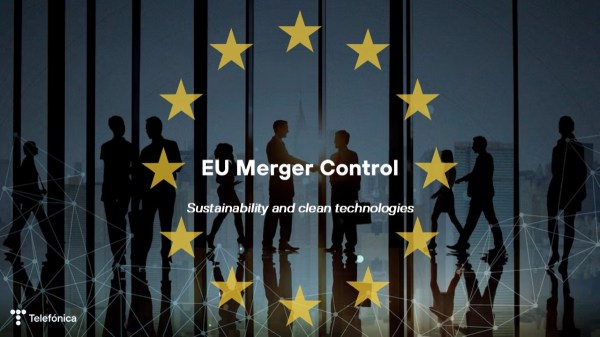RELATED POSTS
Technology and cooperation, through telecommunications infrastructure and the Internet, have become our most powerful weapons in fighting the coronavirus and joining us as a society.
One of the most widely shared messages in networks and digital media during the weeks of confinement explains that the main reason why companies have accelerated the process of digitalization has been the advent of COVID-19. Although this statement is sad, it is quite true.
Many companies have implemented remote working systems in a few days, something that seemed to be achievable only in years. Governments and public administrations have had to learn to use digital media, such as videoconferencing or messaging systems, and change their processes in order to digitize them. The COVID-19 pandemic is the first global health crisis that we will overcome with the support of digital technology. It is therefore no exaggeration to say that our economies and societies have become more digital in recent weeks than in the last five years.
Cooperation versus fragmentation
The Internet, i.e. the global and interconnected space that has completely revolutionized our economic and social systems, is being a key piece both to stop the virus and to keep us connected at a distance. The network is allowing us to access information on a global scale to learn, innovate and develop faster than ever before. It is the open and interconnected Internet that supports the free flow of data worldwide, making it easier for us to follow the evolution of the virus, to share good practices that help to stop it and to help in the management of this global crisis. Thanks to the Internet, we have been able to use 3D printing systems to produce product components such as respirators or protective screens. The world’s most powerful supercomputers are working together to find solutions against the virus, connected to the same global infrastructure. International supply chains, which are managed through the Internet and support e-commerce, have allowed us to continue buying essential products, medical supplies and other goods, even in a situation of confinement and restricted movement.

Over the past three decades we have learned that there is no better solution for cooperation between human beings than the Internet
However, it seems that not everyone finds benefits in connecting to a single open, global network. Fifty years after the creation of the Internet with the IP protocol, there is a dangerous trend towards fragmentation. Lack of trust and the geopolitical divide have fostered a technological decoupling that may endanger the global Internet ecosystem.
This decoupling is not only occurring at the social layer of the network, i.e. access to certain types of online content, but also at the technological and logical layer of the Internet. This is more worrying because it is a clear inclination towards differentiation in the infrastructure, hardware, software and protocols that support the network. An example of this is Russia, which has already passed a set of laws aimed at ensuring the stable operation of its own Internet (Runet), in the event that it was to be disconnected from the global infrastructure. The government of Iran is taking similar steps to prevent its citizens from connecting to the global network. These eminently national initiatives are leading us towards the creation of independent and self-sufficient technological islands that may not be interoperable or interconnectable and that would lead us to the end of the Internet as we know it.
In the light of this disintegrating attitude, we have learned in the last three decades that there is no better solution for cooperation between human beings than the Internet. I doubt that there is anyone who has not learned something new and useful in recent weeks, through videos or other information shared online. Our collaboration finds its roots in the web: from educational content and group communication tools for continuing the education of children after school closes, to ways of protecting against the virus, to the coordination that requires applause at eight o’clock every day. But the Internet is going further and is allowing us to develop applications and initiatives that help us control the spread of the virus. To do this, it is essential to encourage open cooperation, based on open source systems and international standards that favour the exchange of data and information. In order to achieve this cooperation, the Internet was invented at its origin and it is still the best tool.
A recent example of this practice is the non-profit initiative Pan-European Privacy-Preserving Proximity Tracing (PEPP-PT) which is developing a European standard for using Bluetooth technology in mobile phones to facilitate the monitoring of coronavirus transmission among people potentially exposed to the infection. A group of more than 130 organizations and people located in Europe have coordinated via the Internet and have developed in a few days an open code that can be included in any application and which makes it interoperable with other solutions.
The Internet must maintain the universality and accessibility with which it was designed to continue learning, cooperating and advancing as a society.
The Internet has also served to alleviate and assist in the management of this health crisis. Applications such as Coronamadrid, designed to carry out a self-assessment of those who may be infected and to provide them with advice and recommendations for overcoming the virus, have helped to reduce the collapse of health centres and telephone lines set up for emergencies.
Undoubtedly, the Internet must maintain the intrinsic characteristics of universality and accessibility with which it was designed to continue learning, cooperating and advancing as a society.

Robust infrastructures for a persistent virus
The health emergency caused by the coronavirus has not only highlighted the importance of the Internet as a vehicle for connection, information and communication in society, but also the need for strong telecommunications networks to support them.
Some data are revealing. Since the outbreak of the coronavirus crisis, the telecommunications sector has seen an exponential increase in traffic, due to the high consumption of social networks, video on demand and streaming, games, cloud services and e-mail exchanges. In Europe, traffic over IP networks has increased by almost 40 percent, while mobile use has increased by 50 percent for voice and 35 percent for data. Similarly, the traffic of instant messaging tools such as Whatsapp has increased fivefold and that of content on social and entertainment networks has increased between 20 percent and 40 percent.
The uncertainty in this health, economic and even social crisis has been tempered, with some relief, by the trust provided by solid, reliable, stable and secure communication infrastructures. Despite the regulatory difficulties, the networks of companies such as Telefónica have responded exceptionally well to such an extraordinary situation, thanks to efficient planning and the investments made by operators.
In this area, the case of Spain is particularly significant in relation to the development of ultra-fast broadband networks. In 2008, Spain was lagging behind in Europe in the deployment of fibre to the home, but in just six years our country was at the top of the European ranking. Today, Spain has the most kilometres of fibre-to-the-home network, surpassing France, Germany, the United Kingdom and Italy as a whole. In the OECD, only Korea and Japan have more kilometres of fibre to the home deployed than Spain
The coronavirus crisis has arrived just as Europe was beginning to reconfigure its technological and industrial aspirations with the new digital strategy. If COVID-19 has shown us anything, it is that it is now more necessary than ever to opt for an industrial policy that will boost and accelerate the digitisation of the economy, businesses and public administration. In order to achieve this, it will be essential to consolidate the telecommunications sector and a digital ecosystem based on European values. Efforts will have to be redoubled in terms of training and human capital in order to take advantage of all the opportunities offered by technology in our daily and professional lives.
When we look back on this complex situation in the future, we will realise that this was the moment when technology and cooperation, communication infrastructures and the Internet proved to be our great allies in winning this battle with innovation, cooperation and solidarity.
2020 will be remembered as the year of COVID-19, but also as the year when we became digital societies forever.
This article was originally published in Spanish in Telos, the magazine of Fundación Telefónica.








